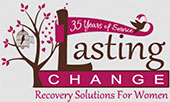Washington County Maryland Addiction Hotline
Washington County Maryland Substance Abuse Treatment Hotline
Washington County, Maryland Substance Abuse Statistics
Substance abuse is a significant issue in Washington County, Maryland, as preliminary data from the county’s health department shows[1]. The National Survey on Drug Use and Health (NSDUH) provides estimates of substance use and mental illness at the substate level, and the data help to identify the extent of substance abuse in the county[2]. Drug overdose deaths have increased among Washington County residents since 2018, with a 66 percent spike in drug- and alcohol-related deaths over the last year[3]. The state health department statistics show that fentanyl-related deaths have jumped 93 percent, from 27 in 2017 to 52 in 2018[3]. These statistics indicate the prevalence of substance abuse in Washington County and the need for effective solutions to address this issue.
Various types of substances are abused in Washington County, with abuse patterns varying according to location[4]. Methadone and Valium are predominant in Washington, D.C. while methadone, Klonopin (clonazepam), and other benzodiazepines are more commonly abused in other areas[4]. The new state report shows that Washington County saw a 32.5% increase in opioid overdose deaths in 2020, indicating the severity of the opioid crisis in the area[5].
The NSDUH report provides nationally representative data on the self-reported use of tobacco, alcohol, and illicit drugs, including opioids, and highlights the need for targeted interventions to address substance abuse[6].
The impact of substance abuse on the community is significant, with increasing rates of suicides and drug overdoses among Washington County residents[7]. The lack of inpatient drug treatment facilities in the county[8] can compound the issue, making it more challenging for individuals struggling with substance abuse to access the care they need. Effective solutions to address substance abuse in Washington County include increasing access to treatment and recovery services, implementing harm reduction strategies, and providing education and prevention programs. By addressing the root causes of substance abuse and providing support for those struggling with addiction, the community can work towards reducing the impact of substance abuse on Washington County.
References
1. Public Health Notice: February Overdose and …. from washcohealth.org
2. National Survey on Drug Use and Health (NSDUH). from www.samhsa.gov
3. Washington County sees sharp increase in drug, alcohol …. from www.heraldmailmedia.com
4. Abuse – Washington/Baltimore HIDTA Drug Market Analysis. from www.justice.gov/archive/ndic/pubs23/23834/crime.htm
5. Opioid OD deaths increase throughout state of Maryland. from www.wusa9.com
6. HHS, SAMHSA Release 2022 National Survey on Drug …. from www.samhsa.gov
7. Community needs assessment ranks top health priorities. from www.heraldmailmedia.com
8. Can Hagerstown Kick Its Habit?. from www.baltimoremagazine.com

Washington County, MD Drug & Alcohol Recovery Resources

Washington County Maryland Government Addiction Recovery Resources
Washington County Maryland Alcoholics Anonymous
Washington County Maryland Alcoholics Anonymous Hagerstown MD. Washington County Maryland Alcoholics Anonymous (AA) in Hagerstown, MD, plays a crucial role in providing support and resources for individuals battling alcohol addiction. Through regular meetings and a supportive community network, AA Hagerstown offers a safe space for individuals to share their experiences, receive guidance, and find solace in their journey towards sobriety. Led by volunteers who understand the challenges of addiction firsthand, these meetings emphasize the principles of anonymity, honesty, and mutual support. By fostering a sense of fellowship and empowerment, AA Hagerstown helps individuals navigate the path to recovery and build a life free from the grip of alcoholism.

Washington County Maryland Goes Purple Recovery Resources
Washington County Maryland Goes Purple Recovery Resources. Washington Goes Purple is a substance misuse awareness campaign to educate our youth and community about the dangers of prescription painkillers. Did you know the CDC estimates that 75-82% of heroin users begin with prescription painkillers? It’s time to start having the “new conversation” in our community- one that includes the dangers of prescription painkillers.

Washington County Maryland W House Women’s Residential and Outpatient
Washington County Maryland W House Women’s Residential and Outpatient. Residential program is an individualized program averaging 90 days. It is individualized to the need of the client and can be extended if clinically necessary. Outpatient program is an individualized step-down program that allows the client to obtain treatment for as long as clinically necessary. This program spans 3-12 months (average) and is broken down into phases to allow clients lower levels of involvement.

